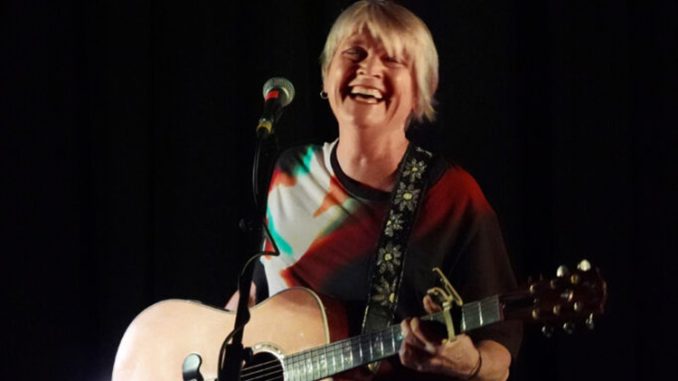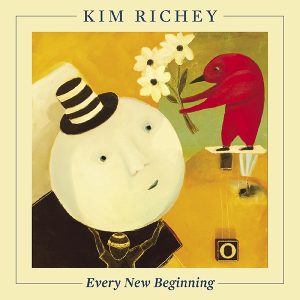
Review by Bernard Zuel
 KIM RICHEY
KIM RICHEY
Every New Beginning (Yep Roc)
This album begins with two songs of farewell, of leaving behind at the very least. Songs that speak of the past as almost tangible and near but yet beyond reclamation or reliving. For audiences and artists of a certain age – to wit, not 25 or 35 – these might be familiar grounds for our music and our lives: reminiscence, like our glasses, are minted (rose) gold after all.
The splendid Kim Richey is a more interesting, more nuanced songwriter than that andEvery New Beginning – a title containing more than a few ambiguities – is more complex on every level from musical to emotional. Here, those songs, Chapel Avenue and Goodbye Ohio, don’t celebrate automatically, though they can see the glow, and they don’t live with the regret of some golden times for living as if that was the only time to live. Instead, they measure everything on its own terms, and set the template for the eight songs which follow.
The childhood curios and summer parades, the hiding places and sissy bars, the “hippies, hobos, ghosts and goblins/Dracula, Batman and Robin”, of Chapel Avenue, play as nostalgic, play as formative, but like a charmed embrace – indeed, like the reflective balladry in the acoustic guitar and soft shapes of the backing voices – they also play as warmth of a life lived beyond those references. That life lived informs the requests made of a faltering lover in Goodbye Ohio (“Don’t let the fire die down/Don’t let the light fade in your eyes”) amid the observations of nature replicating/predicting emotion (“The sun is colder/And the lonely nights fall curtain-like/Blackbirds on our shoulders”) and the acceptance that ends do come (“Another place/Another time/Go before I change my mind”). There are no end-alls and be-alls.
Maybe one of those bike riders from Chapel Avenue grew up to be the “do-or-dier, flying low to the ground” a couple of songs later in Joy Rider. With bar piano setting the pace and Richey singing with a smile, there is palpable pleasure even before she describes how when watching him ride “It feels just like I could grow wings and fly away”. Rules are for later: there’ll be plenty of time.
Maybe the experienced if resigned protagonist of Goodbye Ohio is the woman who earlier in her life had come through the experience of Feel This Way. Turning up late in the album and bringing a southern church-meets-Laurel Canyon mix in the mould of Jackie DeShannon, Feel This Way is riddled with pain (“It hurts like it’s always going to feel this way”) but like the guitar solo which bends with the wind, acceptance has its own strength.
Even regrets have a slice of hope at times. See for example Come Back To Me where the fiddle and banjo over a chugging train rhythm gives us a country song that moves forward looking up rather than back, that tells itself “And if I look up just in time to see a star fall down/Then you just might/Come back to me”, that says pretending for a while won’t be the worst thing to happen.
Don’t let this have you think Richey is all sweetness and joy when it comes to breakups, chalking them up to adding experience like some Quaker self help guide. The bitter aftertaste of the prettily elegant Take The Cake, with its strings and relaxed delivery to balance its (literal and figurative) bite, and the way The World Is Flat doggedly scrapes away at the veneer of a relationship – the waltz tempo and languid singing not the only things contributing to the sense we are in territory Aimee Mann would recognise – carry weight.
But like the perceptive observations of those first two songs, there are more shadings than spotlights in these characters, more thoughts than answers. Richey writes songs the way you might want to live your life: circling truths before making a call, trusting in something that holds rather than in the easiest tug, and reaching out rather than always in.
“Drop the needle on your favourite sad song/You’re not the only one,” she says in A Way Around. You know, I think I just might.

